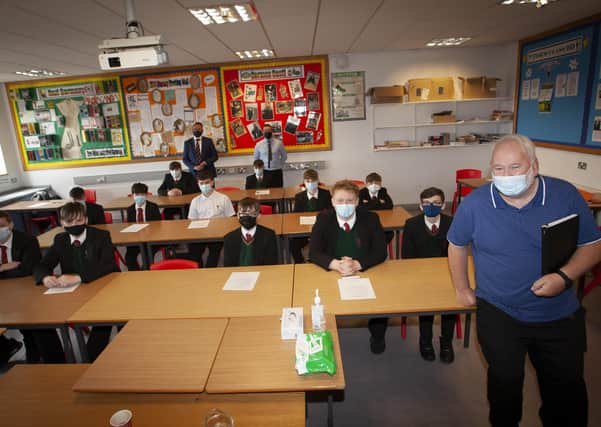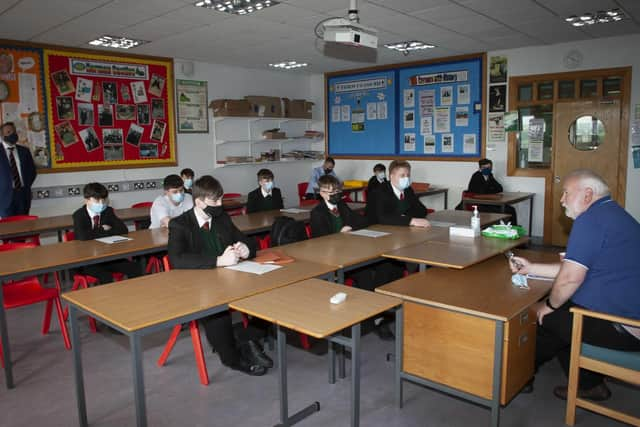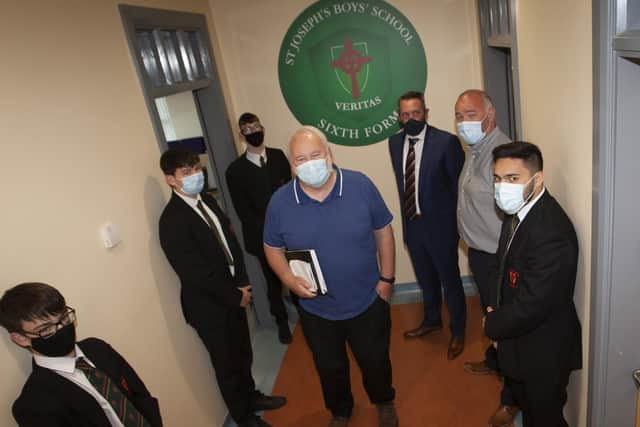Derry was ‘Europe’s biggest open-air’ prison former Journal editor tells pupils


He made the comment when visiting St Joseph’s Boys’ School on Monday last to speak to Mr. O’Loughlin’s Year 11 pupils about the impact of the Troubles in Derry and his his experiences during the Hunger Strikes and subsequent peace process.
Pat told the pupils: “I came to Derry in 1981 and the Hunger Strikes were front and centre stage - black flags everywhere, pro H-Block graffiti on gable walls on just about every key vantage point in the big estates, all the street lights on Strand Road had been shot out.
Advertisement
Hide AdAdvertisement
Hide Ad“Looking back now that expression that Derry was ‘the biggest open-air prison in Europe’ is true but that doesn’t really come close either. It was beyond that in that there were heavy duty physical and psychological issues combining to create an atmosphere that was seriously oppressive.”


Referring to his own role Mr McArt said Derry was very much in the news in those days with John Hume, Martin McGuinness, Bishop Edward Daly, Gregory Campbell etc, regarded as major players in the events of the time.
And in the battle to win hearts and minds, he explained, they frequently used the Journal to get their messages across.
Of course, this was all in the pre-digital age and people in the Derry area relied almost exclusively on the Journal to provide their news. The circulation of the paper at that time was, on occasions, as high as 29,000. It was estimated that each paper was read by five people in any household and many were even posted off to the homesick Derry diaspora.
Advertisement
Hide AdAdvertisement
Hide AdThe politicians were acutely aware of the Journal’s impact and Pat recalled how the political titans in Derry would jostle to have their statements if not the lead story at least on the front page.


And he posed a question to the pupils – should a paper/or any news organisation reflect public opinion or should it frame it?
Pupils were given the opportunity to question Pat about the difficulties of his role, the need for an editor to be judicious in a divided society, and the dangers of reporting in Derry at this time.
It was a very informative and enjoyable session. One pupil Jack Gallagher observed, “it is hard to believe that Derry in the 1980s and today are the same place. Mr McArt was able to give a personal insight into the dealings at the time. He says he is writing a book about his experiences which should be a fascinating read.”
Advertisement
Hide AdAdvertisement
Hide AdPointing out that it was 30 years since he had last visited St. Joseph’s and that the change in the school was transformational (HOD History and Politics) teacher Peter Smith thought it was only fair that he was given a tour and at times Pat remarked he was ‘speechless’ at the superb facilities pupils now enjoy.